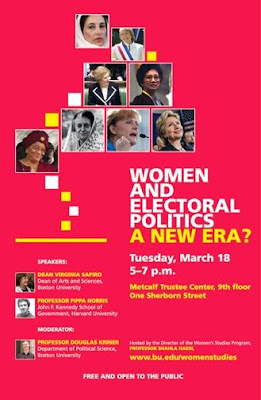FIRST CALL FOR PAPERS
INTERNATIONAL CONFERENCE
Gender: The multidimensional aspect of working in India
ORGANIZED BY VISVA-BHARATI UNIVERSITY AND UNESCO UNDER THE UNITWIN PROGRAMME WITH OTHER INDIAN UNIVERSITIES AND BOSTON UNIVERSITY
VENUE: VISVA-BHARATI UNIVERSITY, SANTINIKETAN, WEST BENGAL – 731 235
DATES: WEEKEND OF 15-16 November, 2008
REGISTRATION FEE: Rs. 1000/- ; $ 50
1. Interested participants and contributors may send their draft synopsis of not more than 250 words on any of the areas listed in the concept note or in related areas to the coordinators by June 30, 2008.
2. Interested participants and contributors are requested to bear in mind that Visva-Bharati will be able to provide local hospitality that includes accommodation and meals. UNESCO has contributed $1000 towards the organization of the conference.
Concept Note
Gender has emerged as a key term in political, economic, social, cultural and pedagogical discourses and praxis in India over the last three decades since the Committee on the Status of Women in India submitted its landmark document Towards Equality (1975). To provide a cursory overview: Gender figures prominently in programs/ projects/ policies of both government and funded non governmental agencies at the macro and micro levels. Thus questions of women’s empowerment and agency recur in government policies regarding reservation, political participation, governance, development, health and education. The pro-woman state policies are mirrored by the judiciary in its amendments with regard to laws for women, and sometimes in its sensitivity in judgments in cases of domestic and public violence against women, in property disputes and divorce maintenance. Non governmental organizations specializing in issues relating to women--trafficking, legalization of sex work, sexual and other forms of violence especially during community conflict situations, reproductive health, HIV/ AIDS projects, micro-financing for self-employment, and assessment of gender sensitization in the pedagogical processes-- have proliferated over the past 15 years.
The setting up of women’s studies centres in several universities in India has facilitated researches and projects relating to ‘gender issues’ not merely in the social sciences, literature, performing and visual arts, but also in mainstream science and technology. There is also an attempt to bridge the gap between academia and activism through the close networking and in building up what is understood as action research.
However, as is evident, in its current deployment gender almost always signifies ‘woman’. Perhaps it is time to question this conflation between gender and woman and reiterate that notions of ‘masculinity and ‘femininity’ are both social constructs created through the discourse of ‘naturalization’ that forms the lynchpin of patriarchal ideology and affects the identity formation of men and women. Rooted in the collective psyche and reinforced through various institutional practices, traditional gender identities play a key role in oppression of both sexes. Thus, it is crucial to underscore that like all historically contingent categories ‘gender’ is not a constant or given and subject to revision and change. Indeed, in a hierarchized gendered Indian society it is impossible to dismantle traditional notions of the ‘feminine’ and challenge female gender stereotypes without a reassessment of the notions of ‘masculine’ and the role and function of men both within the family and outside.
Moreover, gender issues are invariably inflected with questions of sexuality; thus gender stereotypes and roles in patriarchy are deeply invested in issues of compulsory heterosexuality, leading to women’s sexual exploitation, whether within the home or in the work place. Indeed the normative power of heterosexuality still continues to dominate discussion of gender often occluding the significant presence of lesbian, gay, bisexual and transsexual (LGBT) movement in India.
Having stated this it is important to acknowledge that delving into all or several of these aspects is a mammoth task and impossible to undertake given the constraints of time and resources. Thus we think it prudent to focus on a limited number of issues that have been indicated above hoping that deliberations and discussions will contribute to affirmative action.
With this end, we have decided that the conference will have two components: a set of formal academic sessions with valuable inputs from invited researchers/ scholars engaged in the fields and an informal interactive session with activists/ social workers/ members of NGOs, women in local governance as well as students from the various departments in Visva-Bharati.
A tentative list of issues that may be taken up for deliberation is given below. Some of these may be clubbed together as sub themes depending upon the response from the participants. It would be worthwhile to take up specific instances instead of general overviews. The two broad categories which may be addressed are those relating to ‘women’ and those concerning ‘gender identities’:
I. The ‘woman question’ in policy, program and polemics
(a) Women in the political process: representation and agency
(b) Women and development: government policies and roles of NGOs
(c) Women and Law: legal reforms, and problems of implementation
(d) Women and violence with reference to both domestic & public spheres
(e) Women and labour focusing on the invisibility of women’s work
II. Exploring Gender Identities: representations and reformulations
This category will inquire into the discursive formation of gender identities, both masculine and feminine, through various social institutions and its representation in cultural productions, interrogate the ideology of such identity formation and explore possibilities of alternative models. We have deliberately indicated only broad categories at this stage to keep options open for diverse nature of interventions.
(a) Gender and pedagogy
(b) Gender and literature
(c) Gender and the media
(d) Gender and the performing and visual arts
(e) Gender and films
We wish to reiterate that this is only the initial stage of our attempt to conceptualize the conference. We hope to be able to make more specific formulations as responses come in.
Coordinators:
Kumkum Bhattacharya
kmkmbhattacharya@yahoo.com
Swati Ganguly
swati33_g@yahoo.co.uk
Asha Mukherjee
ashamukh@gmail.com







